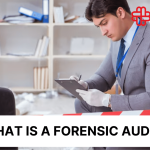Forensic auditing is a specialised type of accounting that investigates various activities, including fraud, embezzlement, and other financial crimes. Forensic accountants conduct forensic audits and examinations and assess fraud risks. They can identify fraud, the factors leading to it, and what assets to recover.
This course provides an overview of forensic auditing and focuses specifically on fraud, including fraud indicators, data analysis, and forensic techniques for identifying fraud.
Upon completion of this course, participants will be able to:
- Understand the motivations and actions of fraudsters.
- Identify the key components of fraud profiling.
- Employ fraud indicators, prioritise risks, and leverage data mining as a detection tool.
- Exercise a variety of techniques to identify fraud.
- Use continual auditing and monitoring to uncover anomalies.
This course is intended for:
- Internal Auditors
- Audit Managers and Lead Auditors
- Fraud Specialists
- Certified Fraud Examiners
- Forensic Accountants
- Managers requiring an understanding of fraud detection and prevention
- Anyone looking to learn more about fraud detection techniques
This course uses a variety of adult learning styles to aid full understanding and comprehension. Participants will review case studies to highlight key areas of importance and possible areas for faults. They will be supplied with the best tools required for learning exercises to improve their skills. Participants will analyse the examples to thoroughly understand how these skills, techniques and methods apply in the workplace.
Day 5 of each course is reserved for a Q&A session, which may occur off-site. For 10-day courses, this also applies to day 10
Section 1: Analysing Fraud
- Describe the role of fraud profiles in developing a fraud risk assessment.
- Identify internal and external fraudsters.
- Examine the Global Fraud Survey results from the Association of Certified Fraud Examiners (ACFE).
- Outline the mechanisms and consequences of identity fraud.
- Discuss the difficulty of detecting corruption.
- Review case studies and key takeaways.
Section 2: Crucial Fraud Indicators
- Discuss the potential failures of fraud controls.
- Explore the mindset of a fraudster.
- Identify and explore common fraud indicators.
- Develop a set of forensic audit tools and techniques.
- Examine how to balance the cost-effectiveness of prevention and detection.
- Identify vulnerabilities in your organisation.
Section 3: Data Mining Analysis
- Describe data mining strategies.
- Determine how to prioritise fraud risks.
- Analyse financial records using Benford’s Law.
- Review Computer Assisted Audit Techniques (CAATs).
- Apply Monte Carlo simulations and Markov chains to model probabilities.
- Describe the effects of big data on forensic auditing.
Section 4: Forensic Techniques
- Describe how automated fraud detection systems work.
- Examine control weaknesses and identify mitigation strategies.
- Discuss the use of association rules in detecting fraud.
- Outline the use of fuzzy logic for fraud detection.
- Explore the use of artificial neural networks to predict fraud.
- Describe the use of data visualisations and pattern recognition in fraud detection.
Section 5: Utilising Detection Data
- Describe how to address potential fraud when it's detected.
- Examine the legal considerations of using forensic data.
- Discuss the use of internal and external databases.
- Describe how to incorporate information and identifiers into audits skillfully.
- Outline the reporting mechanism.
- Identify when and how to notify external organisations.
Upon successful completion of this training course, delegates will be awarded a Holistique Training Certificate of Completion. For those who attend and complete the online training course, a Holistique Training e-Certificate will be provided.
Holistique Training Certificates are accredited by the British Assessment Council (BAC) and The CPD Certification Service (CPD), and are certified under ISO 9001, ISO 21001, and ISO 29993 standards.
CPD credits for this course are granted by our Certificates and will be reflected on the Holistique Training Certificate of Completion. In accordance with the standards of The CPD Certification Service, one CPD credit is awarded per hour of course attendance. A maximum of 50 CPD credits can be claimed for any single course we currently offer.
- Course Code PF1-128
- Course Format Classroom, Online,
- Duration 5 days














